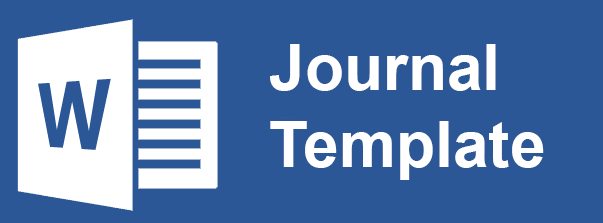FACTORS DETERMINING PARTICIPATION IN THE PROLANIS PROGRAM: A CASE STUDY IN CILEGON CITY COMMUNITY HEALTH CENTER
Abstract
The Controlled Prolanis Participant Ratio (RPPT) in Health Centers throughout Cilegon City in 2023 only reached 0.68%, far below the target. The ratio indicates participants' low utilization of Prolanis services. This study used an analytical observational method with a cross-sectional approach aimed at analyzing factors that influence the utilization of Prolanis in Cilegon City in 2024 with a cross-sectional design. The sample consisted of 90 Prolanis participants, and the data were analyzed using logistic regression. The results showed a Prolanis utilization rate of 61.1%. Chi-square analysis showed a significant relationship (p < 0.05) between Prolanis utilization and gender (p = 0.034), education (p = 0.009), knowledge (p = 0.006), family support (p = 0.000), and the role of officers (p = 0.000). However, no significant relationship was found with age (p = 0.729) and occupation (p = 1.000). Logistic regression analysis identified family support as the most influential factor, with a value of β = 3.98, p = 0.000, and OR = 53.5. These results emphasize the importance of increasing Communication, Information, and Education (KIE) efforts to instill awareness of the importance of regular participation in Prolanis activities. In addition, the formation of groups or associations of Prolanis participants and families in every Health Center throughout Cilegon City is recommended to support the success of this program.
References
Ameliana, Silvi, & Sari. (2021). Faktor yang Mempengaruhi Pemanfaatan Program Pengelolaan Penyakit Kronis (Prolanis) di Puskesmas Kedai Durian. Medan: FKM Universitas Islam Negeri Sumatera Utara.
BPJS-Kesehatan. (2014). Panduan Praktis Prolanis (Program Pengelolaan Penyakit Kronis). Jakarta: BPJS Kesehatan.
Kemenkes-RI. (2012). Buku Panduan Jaminan Kesehatan Nasional. Jakarta: Sekretariat Negara.
Kemenkes-RI. (2013). Buku Pegangan Sosialisasi JKN dalam Sistem Jaminan Sosial. Jakarta: Kementrian Kesehatan.
Kesehatan. (2023). UU-Nomor-17. Jakarta: Sekretariat Negara.
Khairatunnisa. (2022). Pengaruh Karakteristik Individu dan Dukungan Keluarga terhadap Keaktifan Peserta Program Pengelolaan Penyakit Kronis (Prolanis) di Puskesmas Teladan Kota Medan. Akrab Juara, 55, 542.
Noar, D. B. (2023). Faktor-Faktor yang Berhubungan dengan Pemanfaatan Program Pengelolaan Penyakit Kronis (Prolanis) Pada Pasien Diabetes Melitus di Puskesmas Simpang IV Sipin Kota Jambi Tahun 2023. Jambi: Universitas Jambi.
Nugraheni, A., Y., I., P., & T.M., A. (2015). Pengaruh Konseling Apoteker dengan Alat Bantu Pada Pasien Diabetes Melitus. Jurnal Manajemen dan Pelayanan Farmasi, 233-240.
Patima, & Nurul. (2019). Pengaruh Senam Prolanis Terhadap Penurunan Kadar Gula Darah Penderita Diabetes Melitus Tipe 2 Pada Lansia di Puskesmas Binuang, Polman. Jurnal Ilmiah Kesehatan Diagnosis, 14.4, 323-346.
Priyoto. (2014). Teori Sikap dan Perilaku dalam Kesehatan. Yogyakarta: Nuha Medika.
Profil-Dinkes. (2023). Profil dinkes Kota Cilegon. Cilegon: Dinkes Kota cilegon.
Rahmi, A. N., Hidayat, B., Pujiyanto, P., & Priyanti, S. (2015). Faktor-Faktor yang Berhubungan dengan Pemanfaatan Program Pengelolaan Penyakit Kronis (PROLANIS) di BPJS Kesehatan Kantor Cabang Jakarta Timur Tahun 2015. Jakarta: FKM Universitas Indonesia.
Sabrina, L. Y., & Rahayu, S. R. (2023). Determinan Pemanfaatan Program Pengelolaan Penyakit Kronis. Higeia Journal of Public Health Research and Development, 7(4), 610-624.
Syarifain, A., Rumayar, A. A., & Mandagi, C. K. (2017). Hubungan Antara Pendidikan dan Pendapatan dengan Pemanfaatan Pelayanan Kesehatan oleh Pasien BPJS di wilayah Kerja Puskesmas Sario Kota Manado. Kesmas, 6(4), 1-7.
Wicaksono, & Fajriyah. (2018). Hubungan Keaktifan dalam Klub Prolanis Terhadap Peningkatan Kualitas Hidup Diabetisi Tipe 2. Jurnal Ilmiah Kesehatan, 11.
Yuliaristi, & Viona. (2018). Faktor-Faktor yang Mempengaruhi Pemanfaatan PROLANIS di Wilayah Kerja Puskesmas Mandala Kecamatan Medan Tembung . Medan: FKM Universitas Sumatera Utara.

This work is licensed under a Creative Commons Attribution-NonCommercial-ShareAlike 4.0 International License.

Jurnal Kebijakan Pembangunan Daerah is licensed under a Creative Commons Attribution-NonCommercial-Sharealike 4.0 International License.


11.jpg)


.png)
